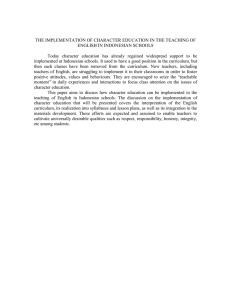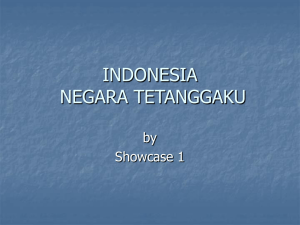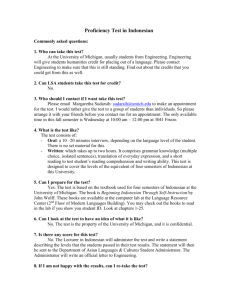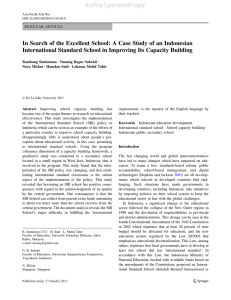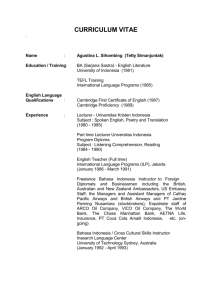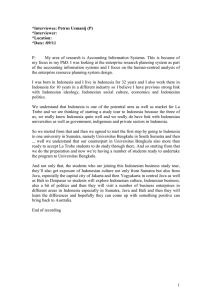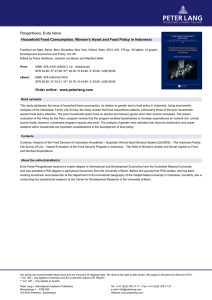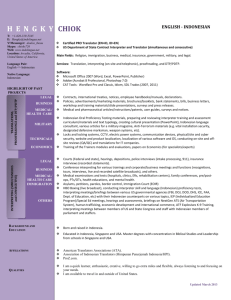The burning issue of multilingual contracts has come to the fore
advertisement
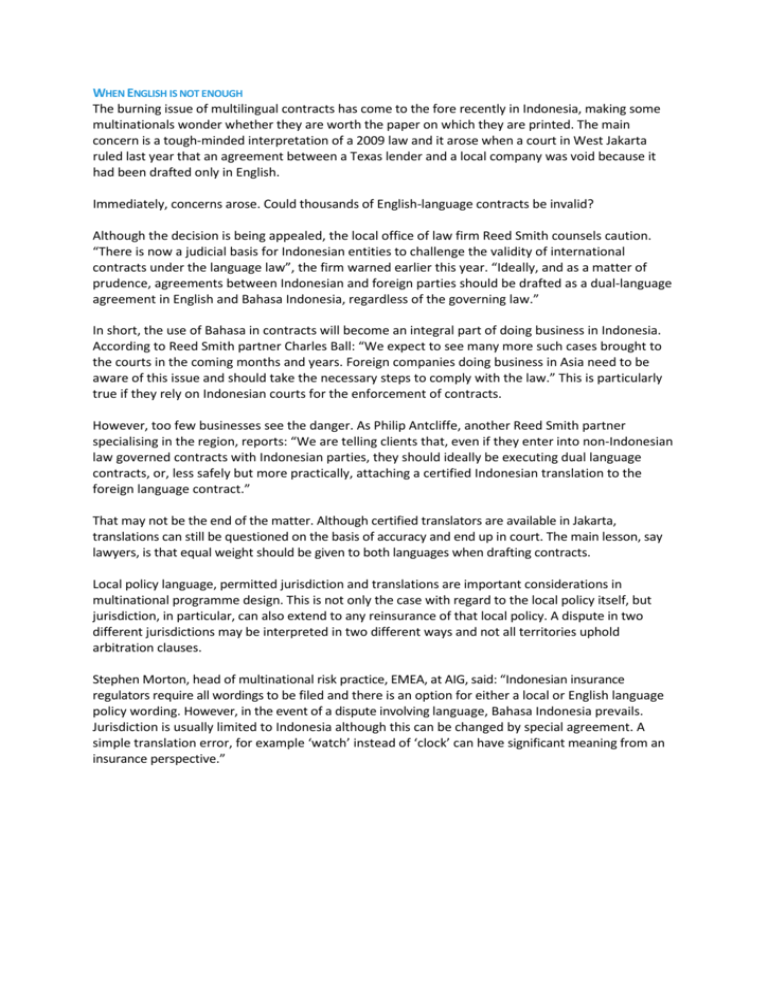
WHEN ENGLISH IS NOT ENOUGH The burning issue of multilingual contracts has come to the fore recently in Indonesia, making some multinationals wonder whether they are worth the paper on which they are printed. The main concern is a tough-minded interpretation of a 2009 law and it arose when a court in West Jakarta ruled last year that an agreement between a Texas lender and a local company was void because it had been drafted only in English. Immediately, concerns arose. Could thousands of English-language contracts be invalid? Although the decision is being appealed, the local office of law firm Reed Smith counsels caution. “There is now a judicial basis for Indonesian entities to challenge the validity of international contracts under the language law”, the firm warned earlier this year. “Ideally, and as a matter of prudence, agreements between Indonesian and foreign parties should be drafted as a dual-language agreement in English and Bahasa Indonesia, regardless of the governing law.” In short, the use of Bahasa in contracts will become an integral part of doing business in Indonesia. According to Reed Smith partner Charles Ball: “We expect to see many more such cases brought to the courts in the coming months and years. Foreign companies doing business in Asia need to be aware of this issue and should take the necessary steps to comply with the law.” This is particularly true if they rely on Indonesian courts for the enforcement of contracts. However, too few businesses see the danger. As Philip Antcliffe, another Reed Smith partner specialising in the region, reports: “We are telling clients that, even if they enter into non-Indonesian law governed contracts with Indonesian parties, they should ideally be executing dual language contracts, or, less safely but more practically, attaching a certified Indonesian translation to the foreign language contract.” That may not be the end of the matter. Although certified translators are available in Jakarta, translations can still be questioned on the basis of accuracy and end up in court. The main lesson, say lawyers, is that equal weight should be given to both languages when drafting contracts. Local policy language, permitted jurisdiction and translations are important considerations in multinational programme design. This is not only the case with regard to the local policy itself, but jurisdiction, in particular, can also extend to any reinsurance of that local policy. A dispute in two different jurisdictions may be interpreted in two different ways and not all territories uphold arbitration clauses. Stephen Morton, head of multinational risk practice, EMEA, at AIG, said: “Indonesian insurance regulators require all wordings to be filed and there is an option for either a local or English language policy wording. However, in the event of a dispute involving language, Bahasa Indonesia prevails. Jurisdiction is usually limited to Indonesia although this can be changed by special agreement. A simple translation error, for example ‘watch’ instead of ‘clock’ can have significant meaning from an insurance perspective.”
